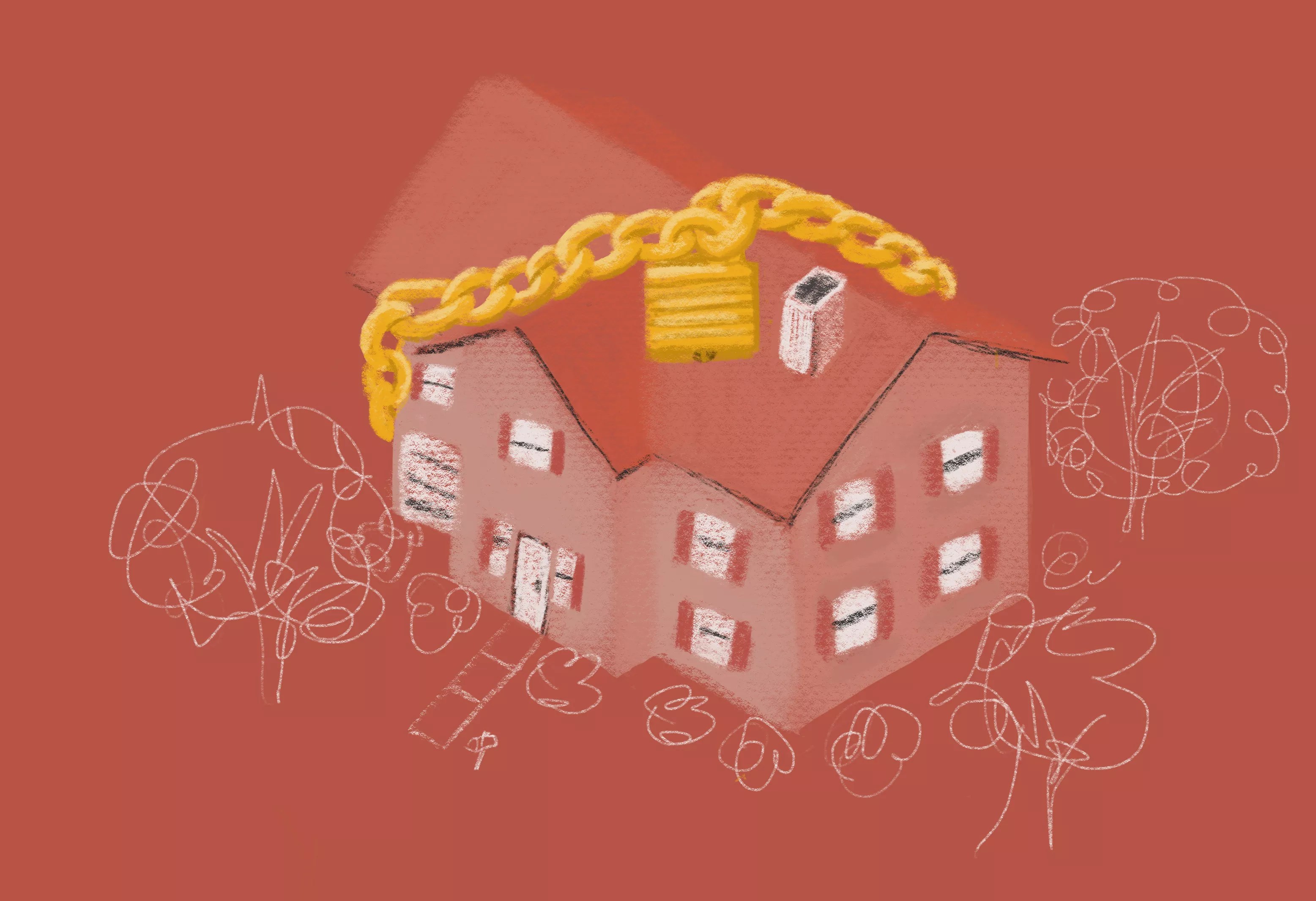
Illustration by Sarah Schumacher

Audio By Carbonatix
The city of Dallas economic development and transportation and infrastructure committees are set to meet on Tuesday, in part, to discuss plans for the Kay Bailey Hutchison Convention Center (winter weather permitting). Then at City Hall on Wednesday, City Council members are scheduled to talk about the 2024 Capital Bond Program and proposed changes to Dallas’ housing policy.
To the local organization Dallas Neighbors for Housing, this is a huge week for housing in the city. The group pointed out the two meetings to its followers on social media, saying “Taken together, they represent a golden opportunity for the city to create more affordable housing.”
It added, “Unfortunately, right now staff’s plans do not make housing nearly enough of a priority.”
The reconstruction of the convention center, the group explained, would make 30 acres of public land available for development. The city’s plan for that land is to turn it into a mixed-used neighborhood with a focus on restaurants, entertainment and about 4,500 hotel rooms to support the convention center. Residential uses “would further activate the area,” according to the city’s plan.
But the group says affordable housing should be the focus of any plan for those 30 acres. “It seems like the residential part is just tacked on at the end, which I think is the opposite way of thinking about it,” Adam Lamont, co-founder of Dallas Neighbors for Housing, told the Observer. To him, it seems like there’s more of a focus on turning the area around the convention center into another entertainment district. “We already have some great entertainment districts in the city of Dallas,” Lamont said. “It just doesn’t seem to make sense to me to then try to have just another entertainment area.”
The area, and city in general, would be better served if the land was used for housing, Lamont said.
Some $125 million for housing infrastructure is in the budget for the 2024 capital bond program. None of that money is being allocated to create more affordable housing, Lamont said. The group would like to see an affordable housing bond program, like the $350 million program Austin passed in November. If nothing else, though, at least some of the money in the 2024 capital bond program should go specifically toward creating affordable housing.
“My concern is not the radical proposal itself, but rather the speed at which the overhaul was proposed.” – Chad West, Dallas City Council
These are just some of the changes needed if the city wants to make the goals of its comprehensive housing policy a reality, according to the group.
The City Council will get a glimpse of some big changes being proposed for the comprehensive housing policy at its meeting this week. Dallas City Council member Chad West has been a little concerned about the scope of these changes and how fast they can be implemented. Earlier this month, it started to sound to him as though the city was getting ready to work on a new policy altogether, which may not be far from the truth.
“My understanding is that staff plans to keep all of the programs that are currently laid out in the comprehensive housing policy but otherwise do away with the structure, requirements and formalities,” West told the Observer by text Monday. It also seems to be getting a new name: Dallas Housing Policy 2023.
The comprehensive housing policy was passed by the City Council in 2018. A March 2022 report found that the policy was “silent on equity.” The report was commissioned by Dallas City Council member Casey Thomas and carried out by the firm TDA Consulting.
TDA made several recommendations to address equity shortcomings in the housing policy. For example, it found that Black and Hispanic people in Dallas are less likely to own their own homes compared with white residents. The report also found the policy didn’t include any framework for tracking progress. Among TDA Consulting’s recommendations were more funding for Southern Dallas infrastructure and the construction of affordable housing, and broader use of housing tax credits throughout the city. The firm also recommended more structure for the plan, including a vision statement and deadlines. In April last year, the City Council approved TDA Consulting’s recommendations.
West said in an email to residents earlier this month that until recently “there was no mention of replacing the [comprehensive housing policy] with a new housing policy.”
Then, West got a draft document explaining the proposed changes. It called for the comprehensive housing policy to be replaced entirely, and the dismantling of the Housing Policy Task Force, the private group that advises changes to the policy. The plan from there, West said, was for the council to vote on the new housing policy in just a few short weeks.
“My concern is not the radical proposal itself, but rather the speed at which the overhaul was proposed,” West wrote.
The whole City Council knows the comprehensive housing plan needs to be overhauled, West said. He just wants to make sure it’s done right. To him, that means the process should include community engagement and an experienced consultant to help create and implement the policy.
In talks with the city manager and his staff, West said he’s been assured that there will be a planning process for the new or overhauled housing policy. In a Jan. 27 memo, City Manager T.C. Broadnax said this process would include community engagement. At its meeting this week the council will get a glimpse of the proposed changes, which are intended to make the city’s housing policy more targeted with a 10-year timeline.
After Wednesday’s meeting, the housing policy won’t be back in front of City Council until it’s ready to be voted on in March.